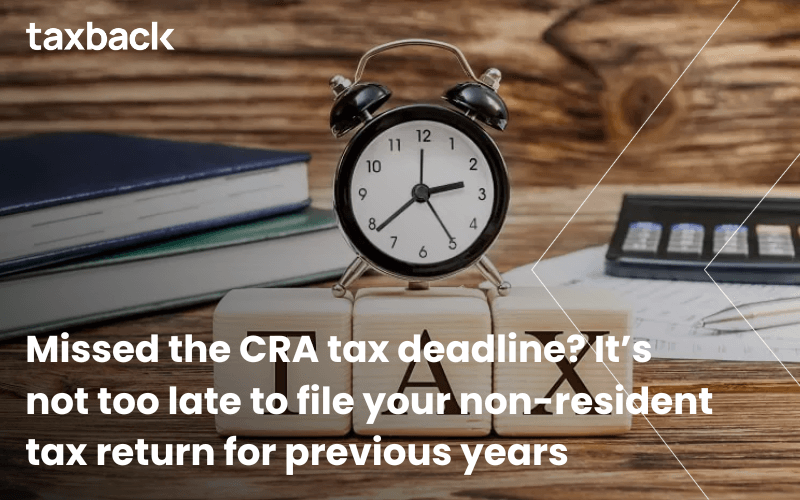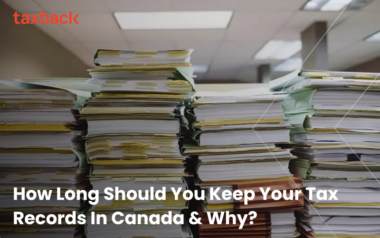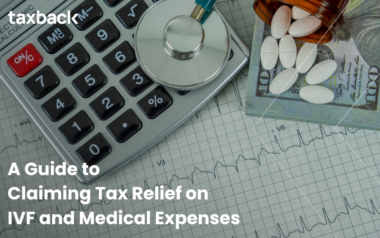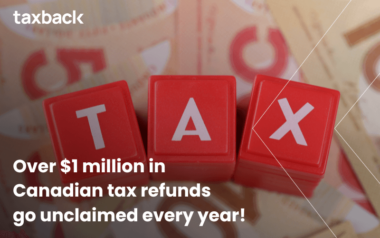Let’s be honest, we’re a bunch of procrastinators. And you’re probably leaving it until the last few weeks to file your Canadian tax return.
Missed the deadline to file a Canadian tax return? Here’s What To Do
Can I file my taxes after the Canadian tax deadline?
Yes, filing late is better than not filing at all!
You should file your Canadian tax return before April 30th each year. However, you can file your tax return any time of year, even after the deadline!
Actually, you can file back as far as ten years, but an important factor to remember is that this is not a smart idea to do this if you are owing money to the CRA.
Every year thousands of people apply for their tax refund after the deadline has passed.
Late-filing penalty
But even if you are not entitled to a refund, it is still very important that you file your documents as soon as possible.
Why? Because you’re going to pay a 5% penalty for late-filing of your 2024 balance owing, plus 1% interest per month, to a maximum of 12 months. The CRA can also take away your provincial medical plan or your GST cheques/ other benefits if you don’t pay this on time.
If the CRA charged you a late-filing penalty for 2021, 2022 or 2023 and requested a formal demand for a return, your late-filing penalty for 2024 will be 10% of your balance owing. You will be charged an additional 2% for each full month that you file after the due date, to a maximum of 20 months.
But if you’re due a tax refund in Canada, technically you have up to 10 years to file your tax returns.
The deadline for filing your Canadian taxes for the 2024 tax year is 30 April 2025.
How do you know if you’re due a tax refund?
You can calculate it yourself, or you can use online software programs or service providers. You can get your full estimation with Taxback.
The Non-resident tax refund from Canada is $998
I am due a tax refund. Will I be fined by filing late?
No, if you are due a refund, there will be no CRA penalty or fine for filing late.
If you worked in Canada in the past ten years, it is possible to claim a refund for these years.
However, it is good not to wait until the last moment because some refundable credits like the EI overpayment are limited to be claimed within 2 years after the end of the tax year.
It is quite possible you will be due a tax refund if you overpaid income tax, overpaid in the Canadian Pension Plan or overpaid employer insurance.
Most working holidaymakers are entitled to claim something back – so it’s definitely worth investigating how much you’re owed.
In fact, the average amount claimed is $998.
Even though there is no fine or penalty the sooner you file, the sooner you receive your money back into your account.
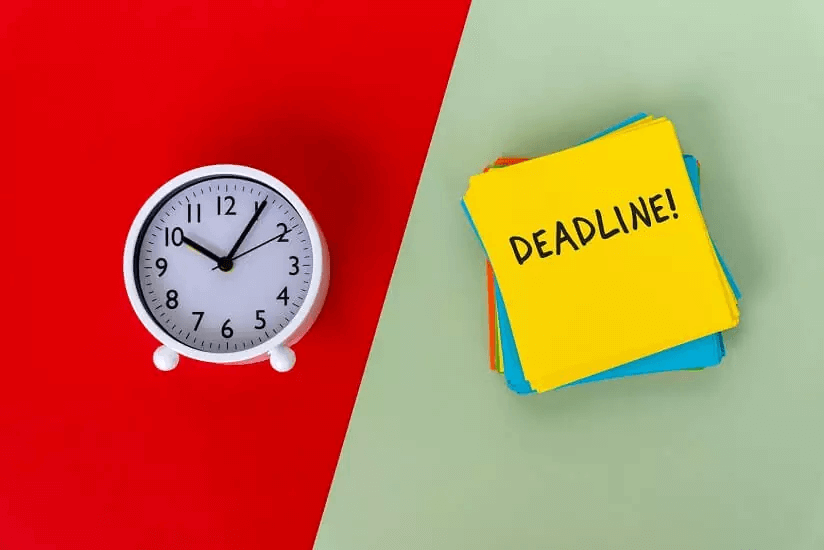
I’m not entitled to a refund. Do I have to file my tax return?
If you owe money to the CRA, it is important that you file as soon as possible.
The CRA charges a late-filing penalty. If you owe tax for 2024, the penalty is 5% of your balance owing for each full month that your return is late, to a maximum of 12 months.
If you were charged a late-filing penalty on your return by the CRA for 2021, 2022 or 2023 your late-filing penalty for 2024 could be 10% of the balance you owe.
2% is also added to your 2024 balance owing for each full month your return is late, to a maximum of 12 months.
If you failed to report an amount of income of $500 or more for a tax year, it will be considered a failure to report income.
Although the CRA are often understanding in cases where income is not reported and it is not unusual for penalties to be waived if you voluntarily disclose previously unreported income.
It is also important to note that even if you could not pay your full balance owing on or before 1 June, it is possible to avoid the late filing penalty by paying the amount you owe before 1 September.
Ready to claim a tax refund from Canada?
What happens if I skip a year filing taxes?
If you skip a year of filing and do not owe any money to the CRA, nothing will happen. When filing, it is possible to claim back taxes for up to 10 years.
If you owe taxes to the CRA, you will be charged a late-filing penalty as mentioned above.
How long does it take to process previous years’ tax returns?
Most Canadian tax refunds are issued anywhere from two to 16 weeks depending on the type of return and when you filed it.
Of course, if the CRA are working through a backlog it will take longer for it to be processed.
How do I file a late return in Canada if I’m a non-resident?
Well, you can file your tax return yourself with the Canadian Authorities.
Alternatively, if you would like help with filing your non-resident tax return in Canada, you can contact Taxback.
Our team will handle all the tricky tax paperwork, ensure you are fully tax compliant and transfer your maximum tax refund straight to your bank account anywhere in the world.
The average Canadian tax refund is $998 – so it’s definitely worth claiming back what you’re owed.
Why Taxback
- No complicated forms – a simple online process
- Your maximum tax refund guaranteed
- They send the refund straight to your bank account
- Our Live Chat team is available 24/7 to answer any of your tax-related questions
The Non-resident tax refund from Canada is $998
Last Updated on March 31, 2025

